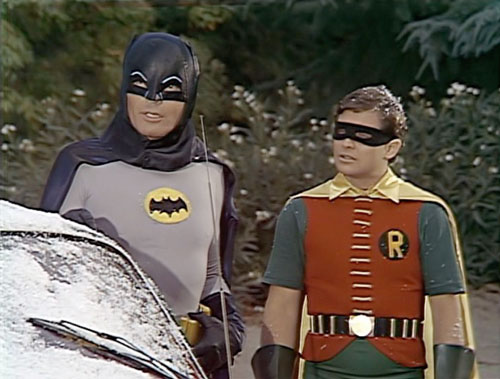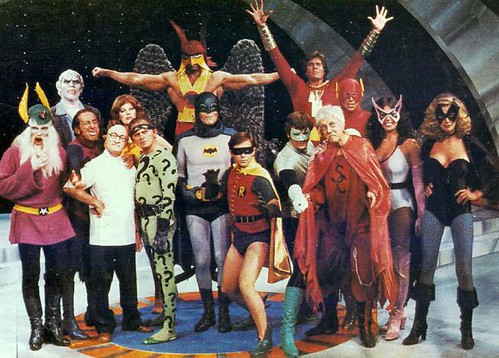Paul, you were pretty critical of the
Amazing Spider-Man TV series; personally, I enjoyed it as it--like The Incredible Hulk--allowed their hero to stand out in a world where costumed villains were not the norm (and as the Marvel Cinematic Universe proves, it can be a cartoony barrier to good, mature stories). Like early Golden or Silver Age comics, the hero was the lone fantastic element pitted against often realistic antagonists, and when he had to use his ability, it played as truly fantastic as it was not common.
According to George Khoury's 2010 book
Age of TV Heroes, and contrary to Stan Lee's decades of rapid-fire revisionist history, the following details the real performance of the
Spider-Man TV series:
When the Spider-Man pilot aired on CBS on Tuesday, April 19, 1977, its viewership was solid. NTI ratings numbers from the time show that the pilot scored a 17.8 rating with a 30 share, not too shabby for a first-time feature-length pilot.
Spider-Man's first five episodes drew a large amount of viewers. The series scored a impressive 21.1 rating with a 34 share during its April 5 to May 3, 1978 airing.
...and...
Spider-Man was not cancelled because of low ratings and not because of negative audience reaction. but partially due to the demographics it attracted and also because of the concerns of then-CBS president William Paley. CBS had major hits with The Incredible Hulk and Wonder Woman, and all indications seemed to show that Spider-Man could have been another substantial draw for the network. But an offhand remark to Paley by one of his friends put an end to CBS' affiliation with anything in a colorful costume.
The basic story, told by Robert James, Fred Waugh (who performed most of the Spider-Man stunts) and others, was that at some point in mid-to-late 1979, one of Paley's close friends made a crack that CBS was going from the Tiffany Network, as it had been called to reflect its high class of programming, to the Comic Book Network.
Within a year, most of the comic book-based programs were gone from CBS' line-up, leaving both the public and personnel surprised and scratching their heads.
By 1979, CBS aired the
Captain America TV movie, (which also performed well enough to generate a sequel film,
Captain America II: Death Too Soon), and the underwhelming
Doctor Strange TV movie. More often than not, comic-book programs were succeeding, which suggests Paley's fragile ego had more to do with CBS' superheroes vanishing than anything else.
Regarding
Spider-Man, that same year, CBS aired the series' final episodes, including the ambitious
"The Chinese Web" (which was the first superhero production to film in/have its location set in Hong Kong), but the series was not the "bomb" or "flop" myths often regurgitated in endless books, YouTube channels, and yes, by Stan Lee during his lifetime.
The
Spider-Man TV series--like
The Incredible Hulk--deserve some credit for building the path toward more grounded, real world-based comic adaptations that would take root (to a degree) in this century, such as Christopher Nolan's
Batman movies, or Marvel/Netflix series such as
Daredevil and
The Punisher. While the tone differs from one production to another (obviously), the
Spider-Man TV series was certainly more level-headed and enjoyable than the foam rubber sideshows that were the Burton/Schumacher
Batman movies, the 1990
Flash TV series (another foam job), Ang Lee's
Hulk, the
Daredevil movie, and frankly, most of the MCU, which is not much better than many 80s cartoons: loud action and not an ounce of sense to be found.









